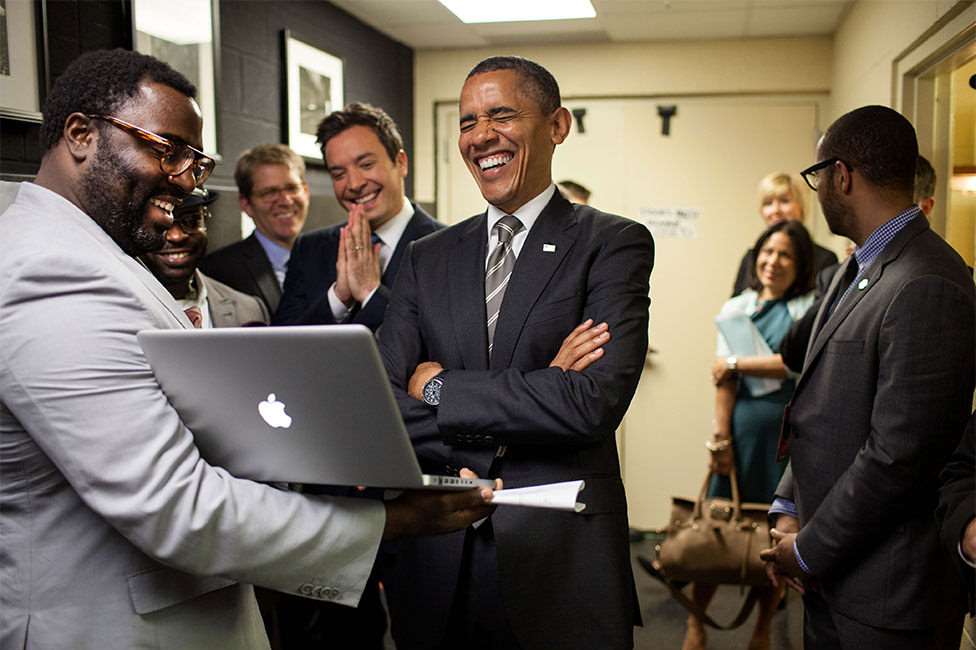The Bad Argument Behind the FCC's Move to Regulate the Internet Like a Utility
Chairman Tom Wheeler's Title II plan is a bow to political pressure.

Earlier today, Federal Communications Commission Chairman Tom Wheeler proposed reclassifying broadband Internet service from a Title I "information service" to a Title II "telecommunications service"—essentially declaring that the FCC plans to regulate the Internet as a public utility.
It has been clear for at least a month that Wheeler planned to take some version of this approach. At a tech conference in early January, Wheeler, who had long resisted reclassification, said he had an "aha moment" when he looked at the regulatory treatment of wireless phone networks. Under the Telecommunications Act of 1996, wireless companies were officially regulated under Title II, but were not subject from some of its requirements, like rate regulation. "Under that for the last 20 years, the wireless industry has been monumentally successful," Wheeler said.
In an op-ed for Wired today announcing the Title II proposal, he reiterated the argument, saying that "over the last 21 years, the wireless industry has invested almost $300 billion under similar rules, proving that modernized Title II regulation can encourage investment and competition."
The problem with that bit of reasoning, as Jon Healey of the Los Angeles Times pointed out at the time, was that in 2007, wireless data networks—which account for a significant portion of wireless industry investment and innovation—were exempted from Title II.
Wheeler is now pointing specifically to the voice component of the wireless industry as an example of a success. This seems at least a little odd: It's hard to imagine most people pointing to the voice component of the mobile industry as being particularly innovative or interesting over the last several years. In recent years, the mobile industry has seen voice use flatline and mobile data surge. That's not likely to reverse; data usage is growing not only because of new connections, but because each connection is using more data. So if anything, the voice component of wireless is on track to become far less relevant.
Yet the Times reports that Wheeler is not only planning to circulate a proposal that reclassifies broadband as a utility, he "may also suggest putting wireless data services under Title II and adding regulations for companies that manage the backbone of the Internet."
Wheeler, in other words, plans to significantly increase the regulatory burden on the fastest growing and most innovative segment of the industry he initially said was the model of a Title II success.
No doubt Wheeler and his backers would argue that the continuing growth and importance of wireless data service is the reason for changing the way it is regulated; the more important it is, the more oversight it requires. According to the FCC, mobile data now accounts for more than half of online traffic.
But that growth, and the relative stagnation of mobile voice usage, undermines Wheeler's argument about how the success of the wireless industry makes the case for Title II. Instead, it suggests that Wheeler wants to pursue reclassification not because the wireless sector has been successful under Title II, but because of the service that has been successful without it.
It's possible that the argument doesn't hold up because Wheeler's story is better understood as cover for succombing to political pressure. It's more likely that Wheeler's original "aha" moment came not when he looked at the path of the wireless industry, but in November, when President Obama announced support for "the strongest possible rules" in service of net neutrality.
The Title II switch would give the FCC more power over the Internet broadly, and thus make it more likely that any net neutrality rules would pass legal scrutiny. Previous attempts by the FCC to set up net neutrality requirements have been thrown out in court.
Wheeler's proposal isn't officially available for the public to see immediately, but Wheeler spells out the basics of the plan in an op-ed for Wired. The five member commission will vote on the proposal on February 26.
What seems clear enough, though, is that the FCC, technically an independent agency, is bent on radically overhauling the way it regulates Internet service after prodding from the White House. The weakness of its case for making the shift apparently matters less than the political pressure to make the change.
(Updated to note details of Wheeler's proposal.)


Show Comments (113)